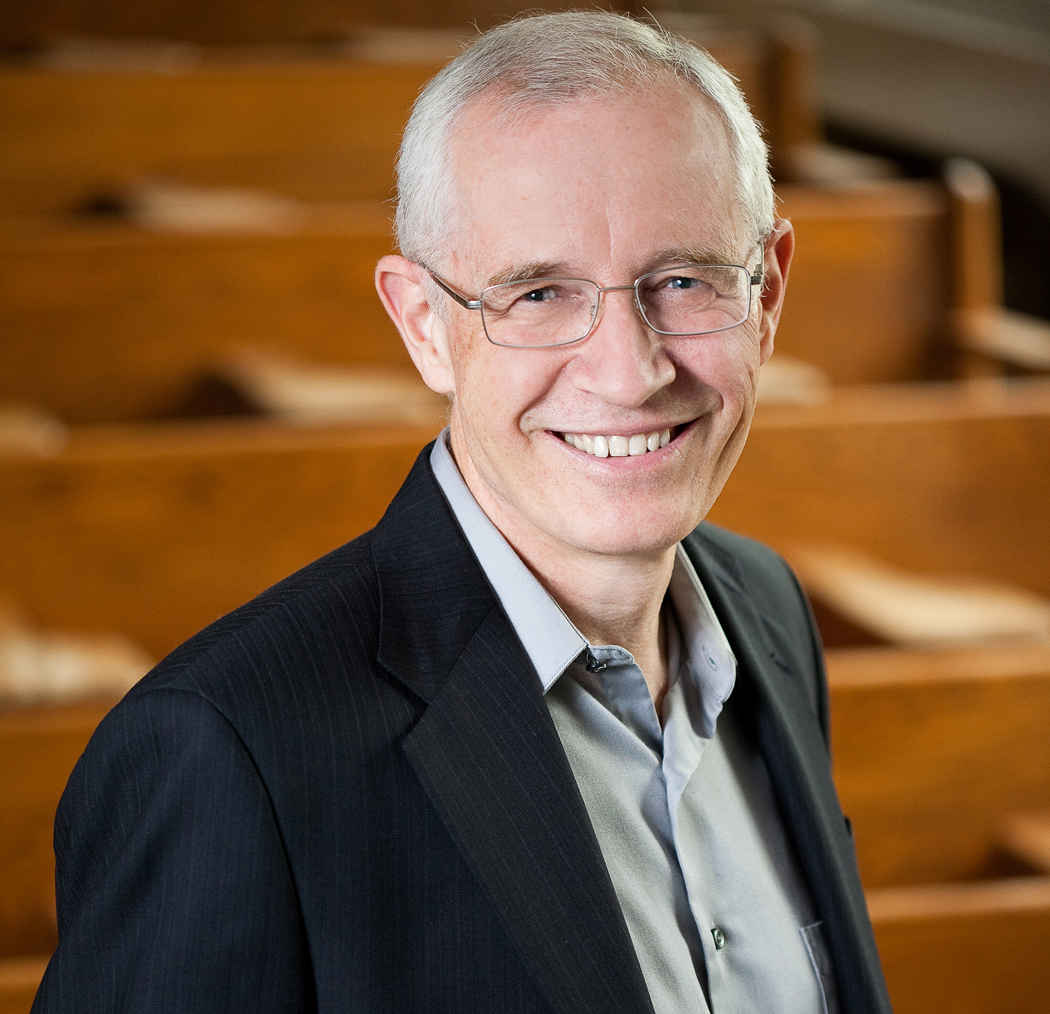
Mark Whitmore, dean, Faculty of Science.
Meet the Dean: Mark Whitmore, dean, Faculty of Science
Wit and Wisdom
Brevity is the soul of wit, said Shakespeare, and Mark Whitmore, dean of the Faculty of Science, is a man who keeps his wits firmly about him during an interview.
Though his own considerable achievements are kept tightly under wraps, he’s very happy to extol the faculty. He gives the credit to those around him, but Whitmore’s passion for science, students and his faculty are matched with an intelligent, steady approach to leading the Faculty of Science through a time of great change.
Over the past while, recounts Whitmore, the undergraduate labs and many research labs have been renovated, the new department of biological sciences has been created from three previous units, and both the Buller building and the old pharmacy building have been renovated. The faculty has also coped with the Duff Roblin fire, and there has been a lot of curriculum renewal, all guided by the Faculty of Science Strategic Plan.
Whitmore joined the U of M as dean from Memorial University where he’d served as deputy department head, acting department head and associate dean for the Faculty of Science. He holds a PhD from McMaster University in an area that is now called computational condensed matter physics. His research focuses on soft materials physics.
Whitmore: ‘The research strengths of this university benefit our students in countless ways and equip them for scholarly and future success’
He has also been active in a number of regional and national initiatives. Currently, he sits on U of M’s board of governors, the board and executive committee of CANARIE, Canada’s advanced internet development organization, TRIUMF, Canada’s national laboratory for particle and nuclear physics, Birds Studies Canada, and a computing consortium in Atlantic Canada called ACEnet whose creation he led. He has also served on the boards of Genome Atlantic, and Canada’s national high performance computing organization, C3.ca, and is this year’s chair of the Canadian Council of Deans of Science.
Rather than speak about his own role, he defers to work being done both by colleagues within the faculty and by the 3,000 or so students in the Faculty of Science.
He particularly lauds the research and the comprehensiveness and variety of the programs at the U of M. “The opportunities for students at the undergraduate level in the sciences here are tremendous,” he notes.
“The research strengths of this university benefit our students in countless ways and equip them for both scholarly and future success.”
He reminds me of the many students that go through the Faculty of Science, since all U of M students must enrol in at least two science courses. He also points out that the faculty not only trains and educates future scientists, but also future medical professionals and others in science-based professions.
Taking on the role of science dean, Whitmore says, has given him opportunity to more deeply consider the role of science in society. It’s not only a capacity for critical thinking, he notes, though that’s certainly a factor.
“It’s the large-scale questions, increasingly, that affect our entire society, from the economic to the practical aspects,” he says. “The big questions, such as climate change — on which scientists agree — still require social judgement, by the public, by decision-makers, and it’s vital that even non-science students understand science at a basic level.
“Science can provide advice and predictions based on knowledge and evidence about the choices we are making and potential trade-offs,” he adds. He cites the demise of the cod fishery as an example where science and scientists could have played a more effective advisory role.
At a local level, he sees that the programs offered by U of M can only improve general science knowledge. “We do a great job,” he says.
“There’s an emphasis on innovation and modern technologies, research and labwork; science facilities have been upgraded so as to provide students with the best possible research and educational advantages and experiences. There are also summer research jobs that allow students to maximize their experience.”
Whitmore’s reserved nature may be well-known to those who work with him, but so too are his integrity, his kindness and his charm. “He’s very witty,” says someone (who shall remain unnamed) who’s worked with him since he was recruited to the university as dean in 2004. “But also intensely private. He’s not one to put forward his agenda; his style is to listen and collaborate.”
With administrative work, he says, “you bring people together, work with institutions and things can happen. It’s really quite satisfying to see what people can accomplish when you bring them together.”
A long-time colleague comments that, “He listens, brings creative scientists together and is willing to see what happens. It’s not about one person. I think it’s probably an incredibly effective and respectful way to work with creative, intelligent people.”
Whitmore brightens when I ask what he finds inspiring. “Brilliant scientists,” he says. “Students and others who have accomplished much and have overcome big barriers to do so. A difficult childhood, a difficult background.”
He is also frighteningly hard-working, as someone adds. “But I have never seen him be anything but kind. He makes every effort to support students and student events.
“If you ever get a chance to work for him, grab it. However, it can be a little tough keeping up with him,” they conclude.
This article first appeared in the February 9, 2012 edition of The Bulletin.






